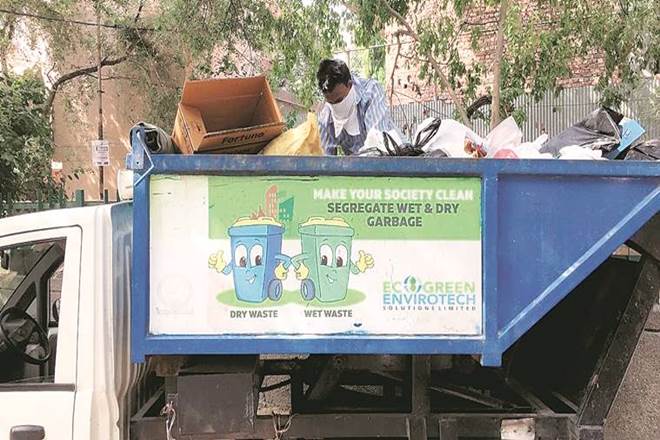
Deteriorating finances in Mumbai — whose budget is bigger than several of the states — bodes ill for India’s economic revival because local expenditure has a bigger impact than that by Prime Minister Narendra Modi’s administration.

Mumbai’s municipal body expects income on its rS 786.7 billion of investments to drop 11% due to lower bank interest rates in the next financial year. (Representational image: IE)
Mumbai, the country’s financial hub and its richest municipality, is exploring new ways to boost revenue as a slowing economy hurts earnings from real estate. This includes tax on garbage collection and additional levies on services such as issuing birth certificates. The Municipal Corporation of Greater Mumbai, which covers half the area of the city of New York but houses 50% more people, sees revenue dropping 5% from its previous target to Rs 238.5 billion in the year through March 31.
Deteriorating finances in Mumbai — whose budget is bigger than several of the states — bodes ill for India’s economic revival because local expenditure has a bigger impact than that by Prime Minister Narendra Modi’s administration. Every Rs 1 spent by states yields Rs 1.07 in extra output versus Rs 0.4 for the Central government, according to a working paper published by the Reserve Bank of India.

For now, Mumbai plans to increase spending by almost 9% in the year starting April 1, including on better storm-water drains to prevent flooding during the city’s annual monsoon, and an ambitious and controversial coastal road that will hug the city’s shoreline from Marine Lines — called the Queen’s Necklace — in the south to the crowded northern suburbs.
It’s unclear though how it will achieve that goal given tax collections on the sale of apartments and offices in India’s priciest property market missed the current-year’s target by 12%. Faced with a fall in revenues from the major sources of income, “the corporation plans to adopt innovative measures for resource mobilization,” Care Ratings economists, including Madan Sabnavis, wrote in a report. These include “measures to recover outstanding dues of property tax and water tax by way of issuance of notices to defaulters, disconnection of water connections, attachments and auction of properties,” they wrote.
Mumbai’s municipal body expects income on its rS 786.7 billion of investments to drop 11% due to lower bank interest rates in the next financial year. It also doesn’t see any additional increase in compensation from the federal government. Until 2017, Mumbai earned a third of its income through octroi, or an entry levy, which was replaced with a nationwide goods and services tax after Modi promised to compensate for a portion of the reduction.
India’s economic slowdown means the federal government hasn’t been able to transfer the funds beyond September. While junior finance minister Anurag Thakur told parliament on February 3 that the remainder will be issued in two tranches, Icra Ratings estimates that GST compensation funds for nationwide distribution will be as much as Rs 250 billion less than what’s needed.
[“source=financialexpress”]



